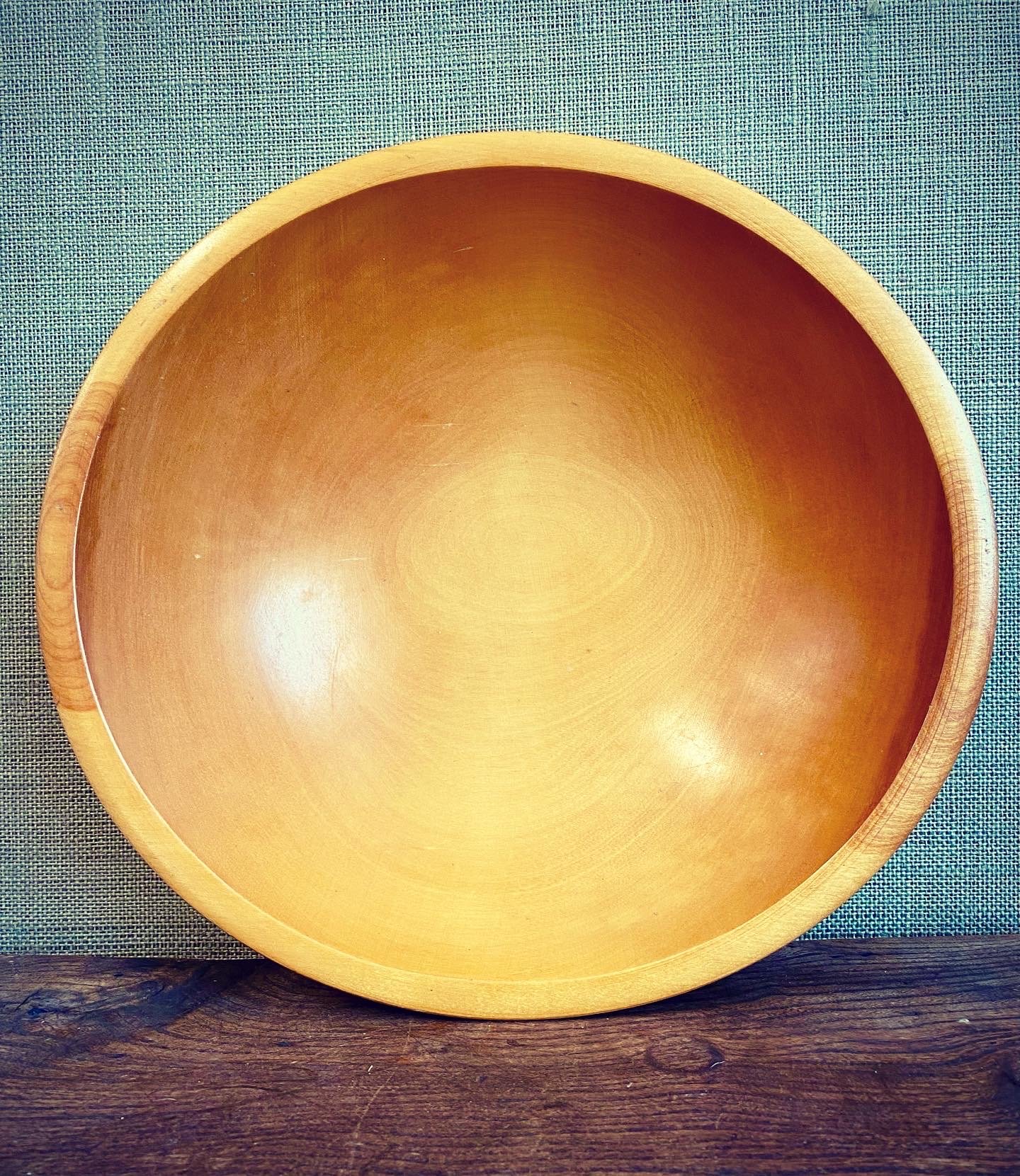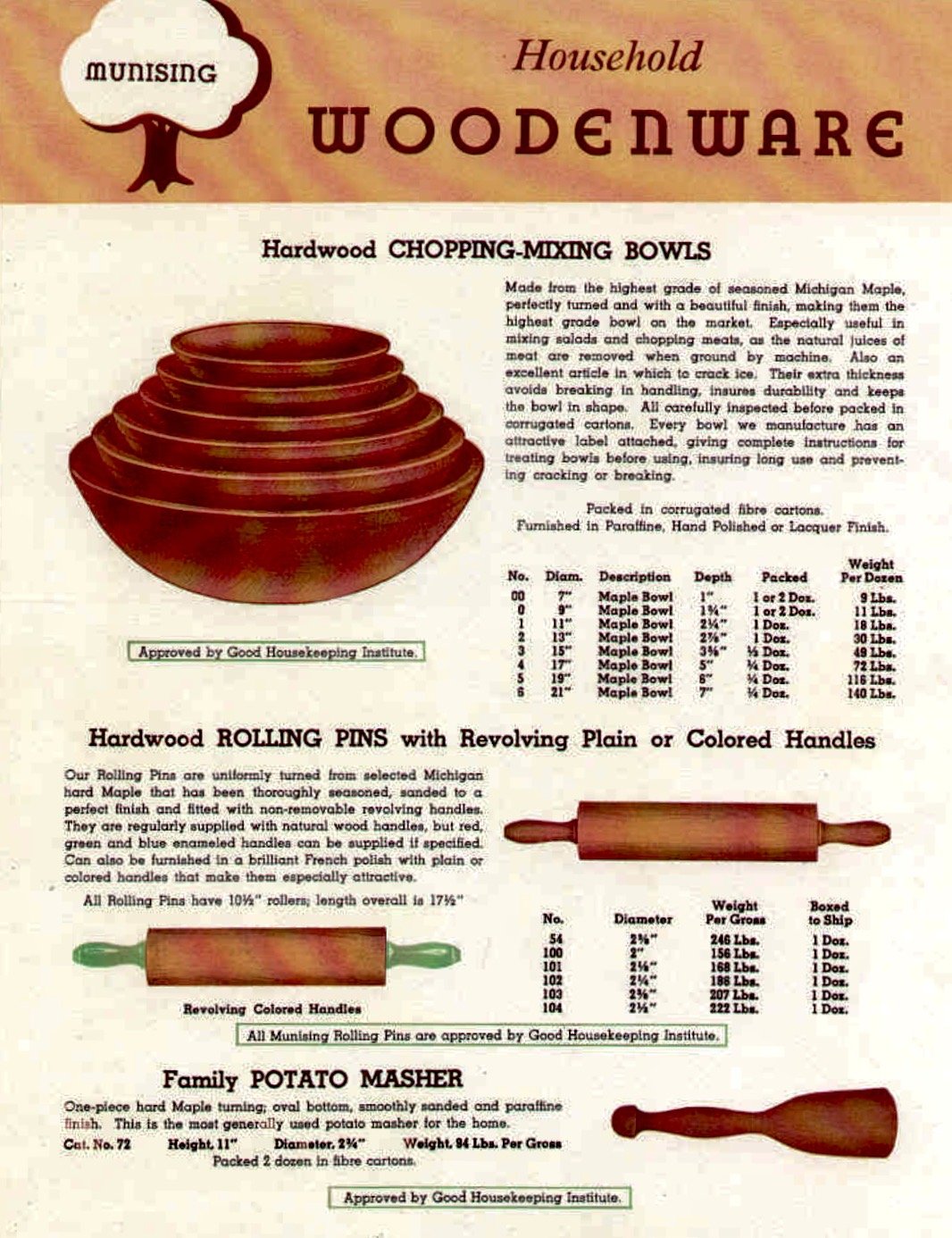Munising bowl
A fine Depression-era Munising bowl. The Munising Woodenware Company (later called Munising Wood Products) was incorporated in Munising, Michigan in 1911. The owners located their factory on the verdant shores of Lake Superior to take advantage of the lush forests of birch, beech, and maple. It was a golden age of wooden implements, with no competition from modern synthetic materials (yet). Munising churned out butter molds, potato mashers, bread plates, kraut stampers, pickle dippers, meat mauls, rolling pins, salt boxes, yarn holders, and laundry utensils— including millions of clothespins. During World War II, the company pivoted to wooden tent stakes, producing over 50 million for the war effort. At its height, Munising employed 250 people and its wares were distributed by Sears, Roebuck and other national retailers. But fate is fickle. In 1948 Tupperware hit the market, and before long no-one wanted dowdy old wood anymore. Munising ceased operations in 1955.
Incredibly, one classic Munising product is still in great demand: their large, shallow wooden dough- or salad bowls. It’s a classic midcentury design that has never been equalled. We have one that we use almost every day, especially for making chopped salads. Munising's bowls were turned from green (uncured) wood, using a proprietary process. A large block of hardwood would be placed on a special lathe, then multiple bowls would be cut from it, nested from largest to smallest. The bowls would then be sanded, sealed (usually), and painted (sometimes). Finally, the Munising name was branded on the base. The left-leaning script on this example dates it to the late 1930s or early 1940s.




